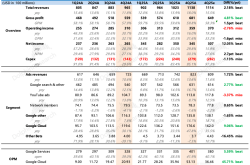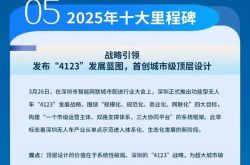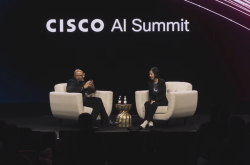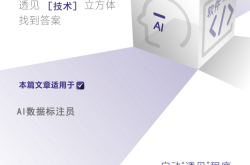Tencent Games Leads the AI Revolution in Gaming | Soaring Performance
![]() 08/21 2025
08/21 2025
![]() 592
592
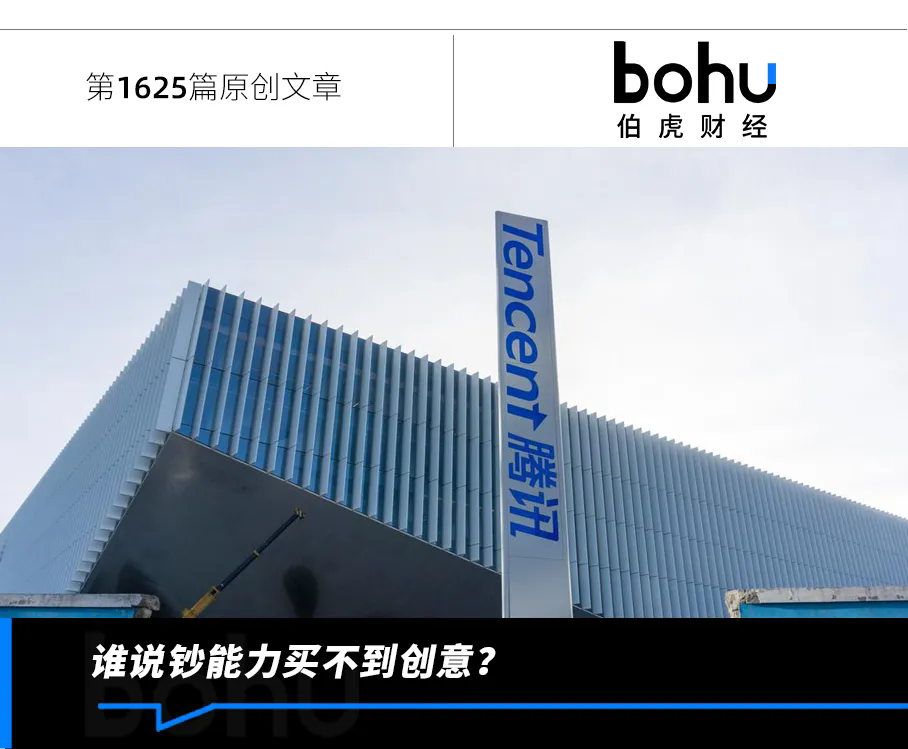
Source | BohuFN
Tencent's second-quarter financial report in a nutshell: Pony Ma silently rakes in the profits.
According to the report, Tencent's quarterly revenue hit RMB 184.5 billion, marking a 15% year-on-year increase. Operating profit (Non-IFRS) stood at RMB 69.25 billion, up 18% year-on-year. Even more impressive is the gross profit, which reached RMB 105 billion, a 22% year-on-year jump, with a gross profit margin of 57%, nearing the profit levels of global tech giants.
This is not a one-off success for Tencent. Throughout the first half of the year, the company's revenue and gross profit have achieved double-digit year-on-year growth. Tencent's soaring performance is largely attributed to the significant rebound in its gaming business.
In Q2, Tencent's gaming revenue amounted to RMB 59.2 billion, a 22% year-on-year increase, equivalent to a monthly income of RMB 19.7 billion. During the earnings call, CEO Pony Ma, President Martin Lau, and Chief Strategy Officer James Mitchell all highlighted AI as a key driver of the gaming business's growth.
So, how is AI transforming Tencent Games?
01 Flourishing Domestically and Internationally
The emergence of MiHoYo's "Genshin Impact" sparked a wave of high-quality games and briefly challenged Tencent Games. In January 2024, Tencent CEO Pony Ma criticized the gaming business for "resting on its laurels."
However, the situation quickly turned around. In 2024, Tencent emerged as the sole winner in the gaming industry with an annual revenue of RMB 197.7 billion, up 9.9% year-on-year. This momentum has carried into the first half of this year. Specifically, Tencent's domestic game market revenue in Q2 was RMB 40.4 billion, a 17% year-on-year increase; international game revenue reached RMB 18.8 billion, a 35% year-on-year jump.
The thriving performance both domestically and internationally is primarily attributed to the strong performance of evergreen games.
During the earnings call, Martin Lau mentioned that the 17% year-on-year increase in domestic game revenue was primarily driven by the growth of evergreen games, particularly "Honor of Kings" (online for 10 years) and "Game for Peace" (online for 8 years). According to third-party data, "Honor of Kings" generated nearly RMB 1.2 billion in monthly revenue in the first half of this year.
The overseas scenario mirrors the domestic one. According to official explanations, the growth in international game revenue is mainly fueled by "Brawl Stars," "Clash of Clans: Clash Royale," and "PUBG Mobile." In June 2025, "Clash Royale," a game under Tencent's wholly-owned subsidiary Supercell, achieved a monthly revenue record, the highest in nearly seven years.
Secondly, Tencent Games has become more agile in capturing new opportunities.
The popularity of new gameplay can drive the upgrade of player devices. For instance, the popularity of "PlayerUnknown's Battlegrounds" once led to overnight upgrades of equipment in internet cafes nationwide. Similarly, the upgrade and renewal of player devices can also catalyze the popularity of certain game genres. In Q2 2025, China's consumer-grade gaming laptop market saw a year-on-year growth rate of 24.3%, far outpacing the overall consumer PC market and becoming the core driving force for industry growth. Factors such as improved equipment, reduced network latency, and enhanced anti-cheating capabilities have jointly increased the market size of FPS games.
This has allowed Tencent's "Delta Strike" to quickly emerge as a revenue-generating powerhouse. After its launch in September 2024, "Delta Strike's" daily active user count (DAU) surged, breaking the 20 million mark by July 2025.
In overseas markets, Tencent's open-world large-scale survival multiplayer online game "Dune: Awakening" sold one million copies on PC within just two weeks of its release, achieving an 89% approval rating with 13,000 reviews and topping the Steam bestsellers list for a time.
The simultaneous excellent performance of new and old games has allowed Tencent Games to sustain its soaring growth on top of a high base from the same period last year.
02 Industrialization Capabilities in Gaming
During the earnings call, Tencent emphasized that the success of "Delta Strike" is not just about ranking in the top five or three, but rather the continuous growth in user numbers and revenue from 7 to 9 months since its launch, demonstrating Tencent Games' ability to produce high-quality game content on a large scale.
Industrialization capabilities are also one of the transformations in the domestic gaming industry post "Genshin Impact." In the past, updates for high-quality games could take up to a year or even longer. MiHoYo's industrialization capabilities allow "Genshin Impact" to maintain a six-week update schedule. Relying on updates, derivative content, and ecosystem construction, even after experiencing a downturn, evergreen games can still see a rebound in user activity and revenue, thereby extending their life cycle.
This has also spurred a transformation in Tencent Games. Previously, Tencent's overseas investments were more focused on securing domestic distribution rights or integrating into WeGame, but now the focus has shifted to "exporting" mature industrialization processes to strengthen in-house research and development.
In January 2025, Tencent Games began reorganizing its structure, integrating more than a dozen studios under TiMi Studio Group into a "4+2" model based on vertical division of labor by track, in order to focus on core tracks and avoid wasting resources.
Subsequently, IEG began optimizing the structure and efficiency of the domestic distribution line, establishing five new departments corresponding to sports, music and dance, shooting, ARPG, and MMO genres, respectively.
In addition to adjusting the organizational structure, AI has also provided assistance to Tencent Games in enhancing its industrialization capabilities.
On the one hand, AI programming and other scenario applications can significantly reduce the production cost and time of games.
Integrating AI into games is not a futuristic dream. The essence of games is content, and AIGC is the best means to improve production efficiency. The main storyline text of the critically acclaimed "Red Dead Redemption 2" totals 2,000 pages, stacking up to a height of 2 meters. In the days without AI, developer Rockstar Games required its development team to work up to 100 hours a week.
However, AI can greatly reduce development work. During the earnings call, Tencent stated that evergreen games such as "Honor of Kings" and "Game for Peace" are evolving towards a platform approach, increasing the application of AI.
For example, Tencent Hunyuan's online game visual generation platform integrates multiple functions including AI art pipelines, real-time canvases, and AI 2D art generation. Tencent Hunyuan has also open-sourced a high-quality 3D-DiT generation large model to support AI game development, but it is more inclined towards the creation of 3D graphics.
On the other hand, AI also offers more possibilities for current game experience innovation.
In February 2025, Tencent's "Game for Peace" announced the integration of DeepSeek for its digital spokesperson "Jilly," making "Game for Peace" the first Tencent game product to adopt this technology. Jilly can provide services such as voice chat and enemy alerts to players, and can also help players plan game strategies. This transforms the game from a past "one-way experience" to a "two-way dialogue," revolutionizing the interactive experience of traditional games.
At the same time, AI technology can also create more realistic virtual teammates and non-player characters, enhancing the enjoyment of the game.
03 Leveraging Financial Might
While innovation remains the cornerstone of the gaming industry, evergreen games, old products, and IPs are still the backbone of a gaming company before new popular gameplay emerges.
However, the essence of evergreen games lies in the combination of gameplay and IP. Games with the potential to become evergreen typically have two characteristics. First, they are likely to be the best in their respective gameplay categories; second, they generally possess IP attributes, with dedicated fans from years of time precipitation and derivative ecological content.
From any perspective, there are not many evergreen games or games with the potential to become evergreen, but Tencent happens to have a substantial reserve. This is thanks to Tencent's financial might.
For instance, the well-known "Teamfight Tactics" and "League of Legends: Wild Rift" come from Riot Games, an American company wholly acquired by Tencent; the overseas revenue mainstays "Clash of Clans" and "Clash Royale" come from Supercell, a Finnish mobile game company acquired by Tencent in 2016; and the copyright for the popular battle royale mobile game in China and abroad comes from Bluehole, a Korean company in which Tencent holds a stake.
In March 2025, Ubisoft bundled its three core IPs, "Assassin's Creed," "Far Cry," and "Rainbow Six," into an independent subsidiary, and Tencent paid EUR 1.16 billion to acquire a 25% stake. By July, Tencent announced the establishment of the K9 Cooperation Department, dedicated to serving its cooperation with Ubisoft. Tencent has also officially announced that the Chinese server of Ubisoft's FPS game "Rainbow Six" will begin its first test in spring 2026.
Faced with content-based games that it is not adept at, Tencent also emphasized during the earnings call that its investments in "Honkai: Star Rail" and "Nikke: The Goddess of Victory" have ranked in the top two in their respective niche categories in the Chinese market and performed well internationally.
Investments have enriched Tencent's arsenal, while AI has enhanced the operational possibilities of evergreen games. Tencent's approach allows it to continuously push the boundaries of evergreen games, forcing many manufacturers to opt for a roundabout tactic – selecting overseas distribution.
04 Final Thoughts
Being ahead does not mean Tencent is devoid of challenges, and anti-cheating is one such challenge.
FPS games need not be mentioned; they have always been a breeding ground for cheats, but "Honor of Kings" has not been spared either.
Previously, a "Honor of Kings" player in Qingdao, Shandong, sued Tencent's Shenzhen Tencent Computer Systems and Tencent Technology (Chengdu) under the "Consumer Rights Protection Law" on the grounds of opaque game matching mechanisms. The case is scheduled to be heard in the Shenzhen Nanshan District Court on August 12 and is expected to become China's first game algorithm lawsuit.
Tencent's response sounds reasonable, as the matching algorithm belongs to the company's core technical secrets, and disclosure would harm corporate innovation and competitiveness. However, it is difficult for users to accept this when it comes to their personal experience.
It is evident that the operation of evergreen games is always a subject of continuous study and improvement.
Reference Sources:
1. Xinzhihe: Exclusive | Game giants compete in AI, an in-depth look at the latest technologies of Tencent, MiHoYo, and NetEase
2. Guangzihsingqiu: NetEase Games' "Great Detour"
The cover image and accompanying images of the article belong to the copyright owners. If the copyright holder believes that their work is not suitable for public browsing or should not be used for free, please contact us promptly, and this platform will make immediate corrections.

